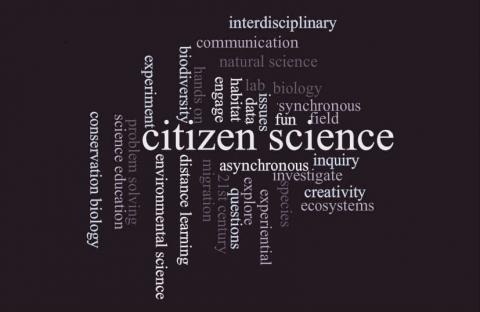“Citizen science”: from Science-in-society to Society-in-science

Science is getting out of laboratories and reaching the general public. That is, we are moving from the only goal of bringing Science-in-society, adding that of bringing Society-in-science: for years researchers have been blamed for living in their ivory towers, and asked to learn how to talk to common people, explaining their work and influencing policies and behaviours; now common people are stepping into science, giving their own support to a common cause.
It is called “citizen science”. The phrase was coined recently, as recent is the situation that it describes, unthinkable until some years ago, in the pre-internet era. According to the Green Paper on Citizen Science, published by the Socientize European project in 2013, the term refers to “the general public engagement in scientific research activities when citizens actively contribute to science either with their intellectual effort or surrounding knowledge or with their tools and resources”. This is a wider definition than that given by Oxford dictionary in 2014, where citizen science is defined just as “scientific work undertaken by members of the general public, often in collaboration with or under the direction of professional scientists and scientific institutions”.
In the European vision, that is ASSET’s as well, it is not only a matter of providing (often free) work, but of mutual learning, competence sharing, bringing new fresh ideas.
In the real world, anyway, the first approach, at the moment, is still prevailing. In some cases citizens are asked to cooperate to different projects gathering data: for instance, mountain climbers can provide information on glacier extension and smartphone apps are available for monitoring birds or marine wildlife.
Many platforms in Europe monitor flu and influenza-like-illness by citizens’ contribution: the model was born in Belgium and the Netherlands in 2003 (De GroteGriepmeting) and was followed by many other countries: Portugal (Gripenet), Italy (influweb), UK (Flusurvey), Sweden (Influensakoll), France (Grippenet), Spain (Gripenet), Ireland (Flusurvey) and Denmark (Influmeter). Since 2009, the national platforms are part of the integrated EU funded project Epiwork and connected in Influenzanet. Currently, 38.385 volunteers from 10 participating countries are contribuiting to it.
New technologies allow anyone to have access to protocols and to send their data everywhere quickly and easily. They also introduced “gamification”, that is transforming some kind of analysis and research work into videogames that can be played by anyone, giving scientists free information and solution. Apart from participation issues, this is very welcome in a time of limited resources.
The second step, involving knowledge, more than work sharing, is much harder to achieve.
New ideas are often gathered through contests mainly addressed to young people. Three British 13 and 14-year-olds have recently won the Teen tech award suggesting condoms that change their colours when getting in touch with infectious agents responsible for the most common sexually transmitted disease. An Italian young student is a finalist at the Google Science Fair, having created a genetic algorithm that could drive the research towards new drugs for ebola.
Other public and private projects are trying to connect different areas of knowledge, taking advantage of the web and notably of new social media to let ideas circulate. In every continent the Wave project is exploring the major currents of what is seen as a wave of collective ingenuity, sweeping across the world. An itinerant photographic exhibition, associated to many open events and meetings, is deepening the issues of co-creation, the sharing economy, the maker movement, the inclusive economy, and the circular economy.
Next step will be helping general public to enter the control room and take part to decisions about science: some charities and institutions are already asking givers to indicate the branch where they prefer money would be used; patients’ association are lobbying to get funding on neglected research areas; social media help people to raise their voice, some time even in controversial ways.
Initiatives such as citizens’ consultation scheduled in ASSET project will give the general public the chance to have their say about pandemic issues, but after being adequately informed.
At the end of the day, this is the point: a correct, transparent and complete information is the only way to achieve a truly free participation.
